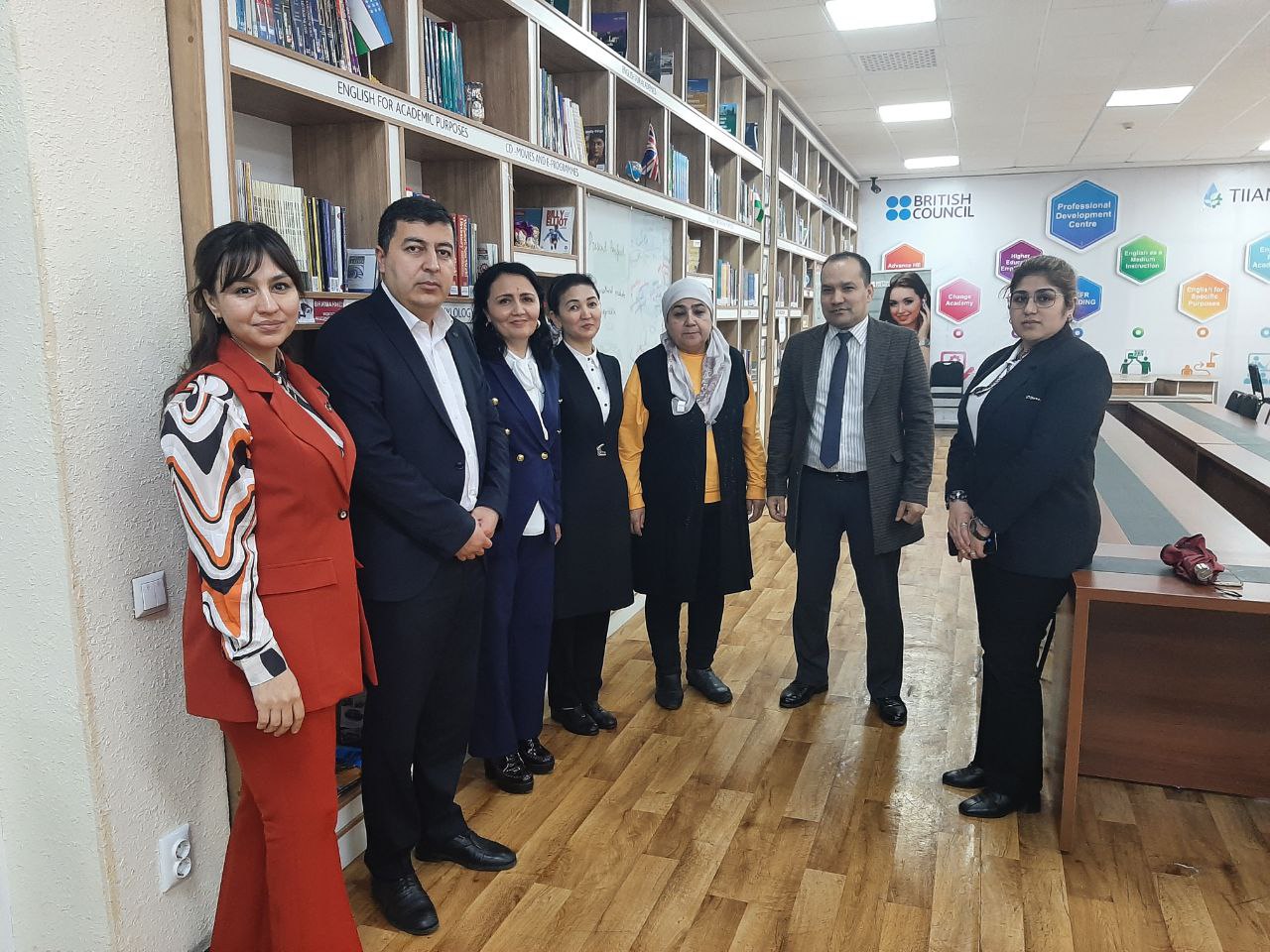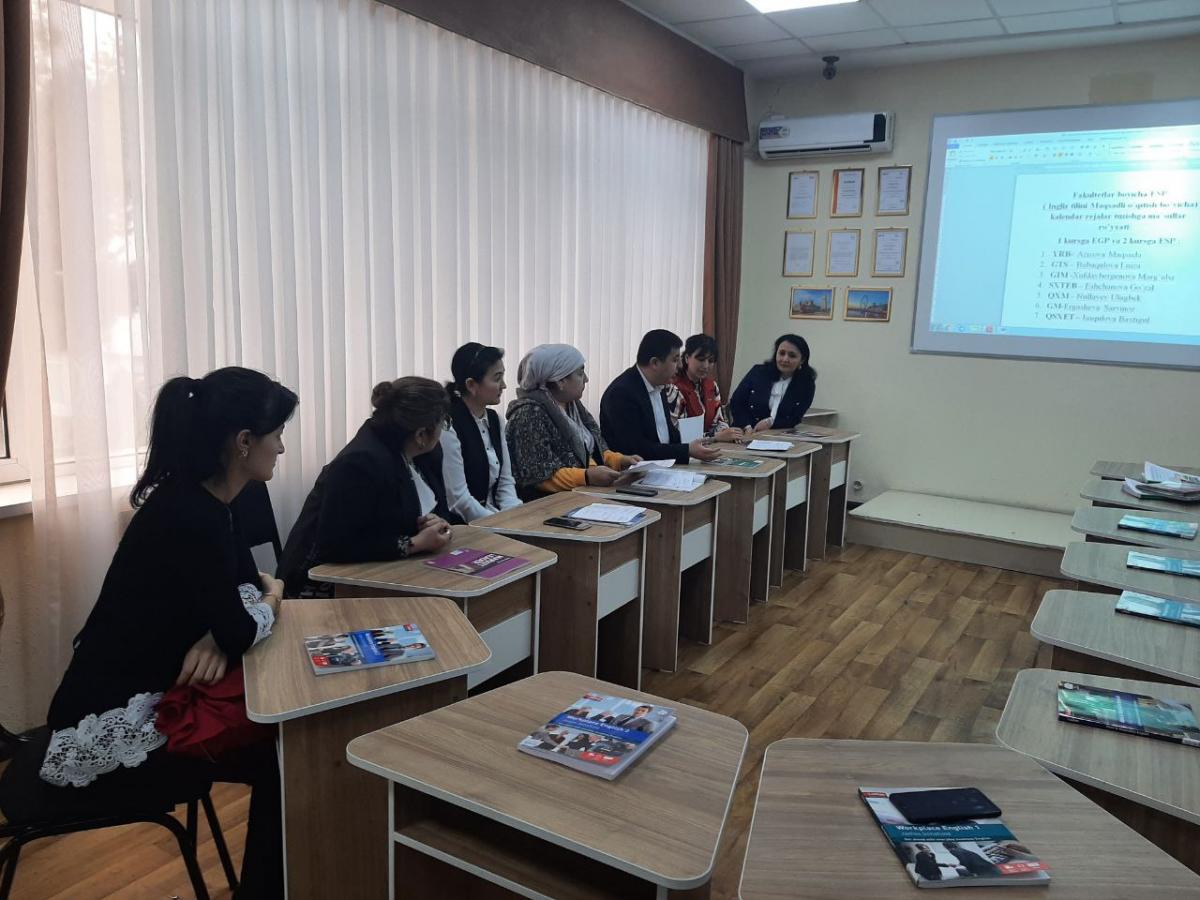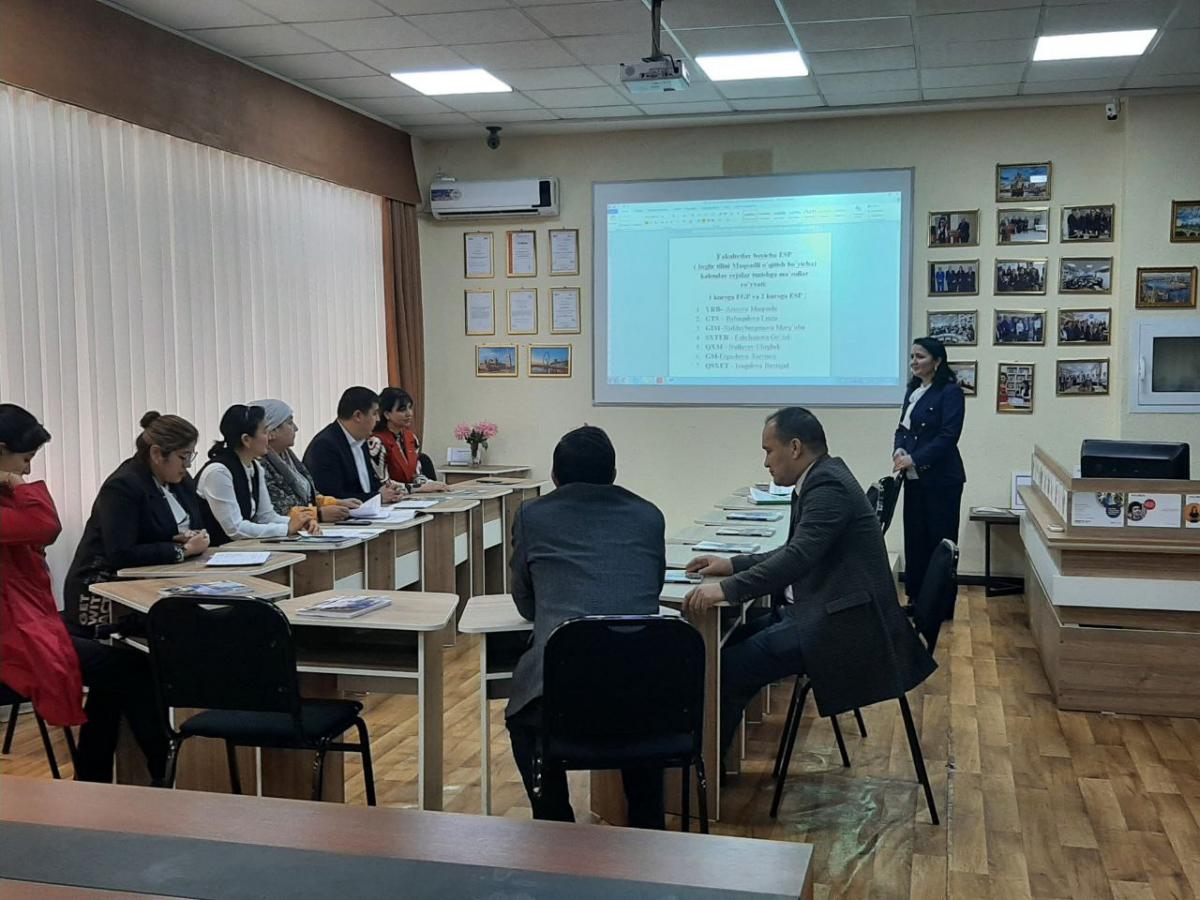
Designing ESP curriculum and syllabus for 2-course students of "TIIAME" NRU
It is important to suggest the adoption of Presidential Decree of the Republic of Uzbekistan, № PD-5117, dated May 19, 2021 "On measures to raise activities to promote the study of foreign languages to a qualitatively new level in Uzbekistan". For the completion of tasks set in the presidential decree, March 11, 2022 at “TIIAME” National Research University there was organized round-table discussion, where the head of “Educational-methodical “ department and professor-teachers of “English language” department of “Organization and Management of Water Resources” faculty participated. The discussion was opened by the head of “Educational-methodical “ department Dr Khodjaev Dadakhon and head of “ English language” department Fayzullo Begov. In their speech, these leaders mentioned about the importance of teaching English for undergraduate students, not only for the first course, but also, for the second course students have been as English for General Purposes.

Due to the New ESP ( English for Specific purposes) curriculum, created within the international project of British Council and confirmed by the Ministry of Higher and Secondary Specialized Education of the Republic of Uzbekistan, Technical Universities got the chance to develop their ESP syllabuses, which is aimed at designing ESP materials in order to train specialists that meet the requirements of labor market. It is worth mentioning that the new programme for the Second course students were created by a group of experienced teachers of “English language” department with the qualification gained within the years of teaching in higher education, such senior teachers as Maksuda Azizova, Marguba Khudaybergenova, Guzal Eshchanova, Bakhtigul Isakulova, Ulugbek Nullaev, Luiza Babakulova and Sarvinoz Ergasheva.

These teachers were responsible for developing materials for the following directions:
1." English for Land Resources Management" -Azizova Maksuda
2. "English for Mechanization of Hydromeliorative works" -Khudaybergenova Marguba
3." English for Organization and Management of Water Sector" -Guzal Eshchanova
4. "English for Agricultural Mechanization" -Ulugbek Nullaev
5. "English for Hydrotechnical Construction" -Luiza Babakulova
6. "English for Energy Supply of agriculture and Water Sector" - Bakhtigul Isakulova
7. "English for Hydromelioration" -Sarvinoz Ergasheva

Differences between the old and the new ESP Curriculum. The following the key differences between the traditional approaches to ESP teaching and the modern approach can be shared.The modern approach places considerable freedom but also responsibility on the shoulders of individual institutions.
Traditional approach to ESP teaching:
One common programme for all institutions with common learning outcomes
No transparent definition of language levels
Does not link learning outcomes to topics and assessment
Focus on language (grammar and phonetics rules)
Modern approach to ESP teaching:
Syllabus that is developed by each institution based on the Ministry’s Curriculum Explicit reference to CEFR levels
Strong link between learning outcomes, content, and assessment
Based on the specific needs of ESP learners Involves employers’ reviews of syllabus.
The Curriculum is also intended to encourage learner autonomy, to give learners greater control over their learning and to enhance learner awareness of their learning processes :
• Students will be able to set their own language-learning goals
• Students will be able to identify their own weak points and progress working independently.
• Students will develop the ability to work with professional literature.
Autonomous learning is learning done without the intervention of the teacher. Students take responsibility for their own learning. Teachers first need to develop Independent learning: that is learning that students do by themselves under the direction of the teacher.
The Curriculum is also intended to encourage learner autonomy, to give learners greater control over their learning and to enhance learner awareness of their learning processes :
• Students will be able to set their own language-learning goals
• Students will be able to identify their own weak points and progress working independently.
• Students will develop the ability to work with professional literature.
Autonomous learning is learning done without the intervention of the teacher. Students take responsibility for their own learning. Teachers first need to develop Independent learning: that is learning that students do by themselves under the direction of the teacher.
Press Service of " TIIAME' National research University
